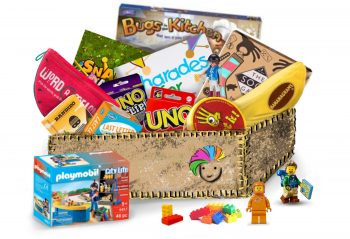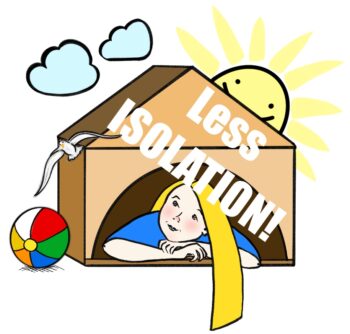1.Introduce the Plan Gently
When planning a holiday with your special needs child, it’s important to introduce the idea gently. Instead of immediately sharing the concrete plan, start by dropping hints about the destination. Research together, mention the place’s name, and raise their interest before diving into the details.
2. Make if Fun and Raise Interest
To engage your child and build excitement, involve them in the preparations. Go shopping together and allow your child as much autonomy as possible in choosing their own suitcase or picking a new t-shirt for the traveling day. Explore geocaches in the area you’re visiting and collect fun facts about the location. Making it a fun experience will help your child feel more connected and eager for the holiday.
3. Give Plenty of Time
Preparing a special needs child for a trip requires ample time for them to adjust physically, mentally, and emotionally. Consider getting a suitcase one or even two months in advance and place it in their bedroom. Encourage your child to start packing it, as this helps them imagine, process their emotions, and visualize themselves in the upcoming context. Allow them to pack and unpack, letting them include anything they want. The suitcase being in their room serves as a constant reminder and aids their emotional and mental preparation.
4. Get a Diary
Having a diary where your child can jot down their thoughts, concerns, or plans for the holiday can be immensely helpful. Marking important dates like departure and arrival times, as well as any special meetups or plans, helps your child feel organized and in control.
5. Set the Menu
For an autistic child, one of the most significant concerns during a holiday is the safety and stability of their basic needs. The fear of disruptions and changes in their already-established routine can cause anxiety. It’s a great idea to discuss the food and drinks they will consume during the trip and schedule meal times. Write down this information in your child’s diary to provide a sense of reassurance.
6. Collect Fixed Facts
Gather and encourage your child to write down all the fixed facts, such as places to visit and other trip details, in their diary. These facts will serve as safe anchors, providing a sense of stability and familiarity throughout the holiday.
7. Be On Time
While focusing on your child’s preparation, it’s crucial to ensure your own readiness as well. Stay organized and complete your tasks in a timely manner. Maintaining control over the situation will prevent unnecessary stress and anxiety, which can negatively impact your child’s well-being.
8. Call the Airline
Reach out to the airline and inquire about their services for special needs children. Ask about their policies and options, such as the DPNA category (Disabled Passenger with Intellectual or Developmental Disability). Inquire about the menu options to accommodate any dietary requirements. Additionally, discuss any specific needs related to misophonia (auditory sensory disorder) and request a seat in a quieter area or consider enclosing yourself with curtains during meal times.
9. Create a Visual Schedule
For children who thrive on visual cues and routines, a visual schedule can be incredibly helpful. Use pictures or symbols to outline the day’s activities, from wake-up time to sightseeing or relaxation. This visual guide provides predictability and structure, easing your child’s anxiety and helping them understand and anticipate the events of the day.
10. Pack Familiar Items
Including familiar objects in your child’s luggage can provide a comforting sense of familiarity and security during the trip. Pack their favorite toys, a cozy blanket, or any other items that bring them comfort and help create a sense of home away from home.
11. Plan for Sensory Breaks
Children with sensory sensitivities may require breaks from overwhelming environments. When planning your itinerary, identify quiet and calm spaces where your child can retreat to recharge. These breaks allow them to manage sensory challenges and prevent potential meltdowns, ensuring a more enjoyable holiday experience for everyone.
Remember, each child is unique, so it’s essential to adapt these tips to suit your child’s specific needs and preferences. By implementing these additional strategies, you can further enhance your special needs child’s holiday experience.
In conclusion, planning a holiday with a special needs child requires careful consideration and preparation and adapting.
By introducing the plan gently, making it fun and engaging, and giving your child plenty of time to adjust, you can set the stage for a successful trip. Utilizing a diary to express thoughts and concerns, setting a menu, and collecting fixed facts act as anchors, promoting a sense of stability throughout the holiday. Additionally, being punctual and reaching out to the airline for accommodations further ensures a smooth travel experience.
Finally, implementing the above tips such as creating a visual schedule, packing familiar items, and planning for sensory breaks will help your special needs child have a happy and fulfilling holiday, despite any anxiety or difficulties they may face.
With these strategies in place, you can create cherished memories and a positive vacation experience for the entire family.








